
Lifelong Wellness Begins with Awareness, Uncovering the Alarming Realities for Ugandan Women
Did you know that Uganda faces one of the highest cervical cancer rates in the world, and yet, fewer than 25% of women get screened during their lifetime? This creates a silent crisis affecting thousands of mothers, daughters, and sisters. Understanding cervical cancer screening, fibroids, and menopause is more than a health issue, it's about empowering yourself, protecting your family, and embracing cultural pride. In this authoritative yet empathetic guide, we reveal not only lifesaving medical facts but also show you how affordable options at trusted places like Case Clinic and community health workers can work alongside traditional beliefs and family values for true lifelong wellness.
What You'll Learn in This Authoritative Guide for Ugandan Women
Empowering insights on cervical cancer screening, understanding fibroids, and menopause management
Affordable screening and treatment options at Case Clinic and similar health facilities
How cultural beliefs and family dynamics shape preventive care
Practical knowledge about cervical cancer and key risk factors
Integrating traditional healing practices with modern recommendations
Expert-backed, empathetic advice from Ugandan health workers
Framing Preventive Care as Empowerment: The Role of Screening and Treatment in Women's Lives
Preventive care is not just a medical necessity, it's an act of empowerment for every Ugandan woman. Routine screenings for cervical cancer, awareness about fibroids, and supporting women through menopause all form the foundation of a powerful, healthy life. By regularly taking part in cancer screening and listening to advice from health workers, women can prevent serious illnesses before they take hold, ensuring continuity and strength for families and communities.
In Uganda, affordable screening and treatment are becoming more accessible, especially at facilities like Case Clinic, where well-trained professionals, including women health workers familiar with the local context, provide a supportive environment. Here, the blending of medical expertise with cultural respect makes it easier for families, including elders and spouses, to accept and encourage preventive health steps. When women bring home both medical knowledge and stories of others who have benefited from early cancer prevention, they transform traditional health beliefs into a legacy of wellness for future generations.
"Early detection can save up to 80% of women from advanced cervical cancer, yet less than 25% of Ugandan women get screened." - Dr. Achan, Health Worker
Why Cancer Screening Matters: Ugandan Perspectives on Health, Family, and Tradition
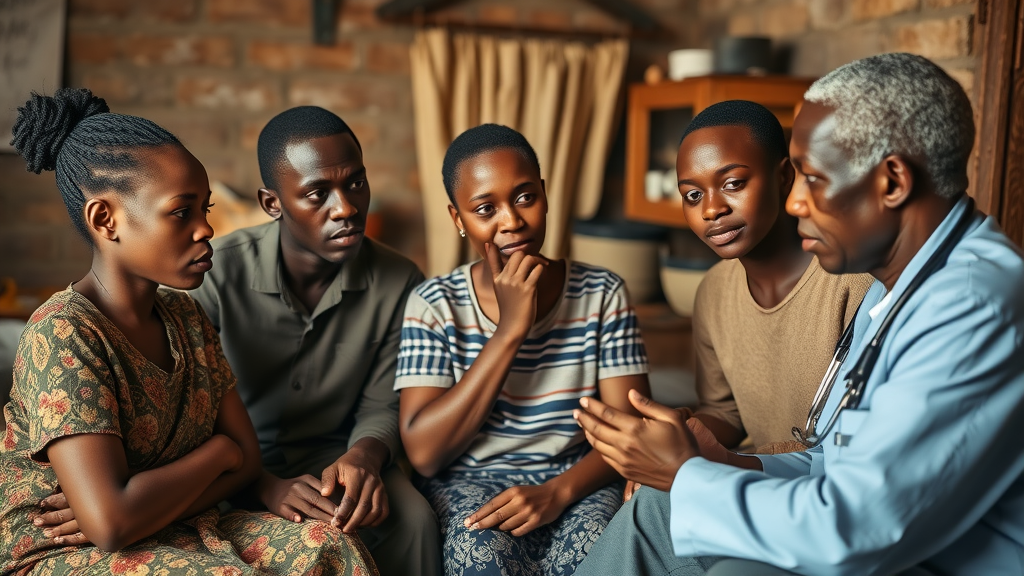
Understanding the critical role of cervical cancer screening
How family dynamics influence decisions for women
Addressing myths and fostering trust in health workers across Uganda
For many Ugandan women, health decisions are made in the context of family, tradition, and sometimes, myth. It is well observed that when health workers gain support from husbands, elders, and even children, women are more likely to take up cancer screening and continue preventive practices. Yet, myths like "screening causes harm" or concerns about privacy can create real barriers. Overcoming these obstacles requires truthful, sensitive discussions, often led by trusted voices in the community, such as experienced health workers or respected elders.
Increasing the screening uptake is essential in public health efforts across both rural and urban Uganda. When families talk openly about cervical cancer risk factors, the stigma slowly fades. Community education sessions, where women share their experiences of early detection and successful treatment, dramatically reshape perceptions. This approach not only enhances knowledge about cervical cancer but also champions prevention as a shared family and community goal, helping Ugandan women protect themselves and their loved ones against the silent threat of cancer.
Cervical Cancer Screening: Crucial Facts and the Latest Uganda Guidelines
What are the new guidelines for cervical cancer screening?
Answer: Recent guidelines emphasize the importance of HPV testing and regular cervical screening for women aged 25-65. In Uganda, every woman should have a cervical cancer screening every 3 years, as recommended by health authorities and professionals.
Uganda's Ministry of Health and international organizations recommend that women in the 25-65 age group have regular cervical cancer screening. The preferred method is HPV (human papillomavirus) testing, shown to be highly effective among African women. Where HPV testing isn’t available, pap smears and visual inspection with acetic acid (VIA) are reliable alternatives. The core of this public health policy: Any eligible woman should never go more than three years without a screening, and those at higher risk factors, such as living with HIV or having a family history, should seek more frequent checks. Health workers at facilities like Case Clinic are trained to guide women through these screenings in a caring, private, and culturally respectful manner.
What are the recommendations on prevention and screening for cervical cancer for health professionals?
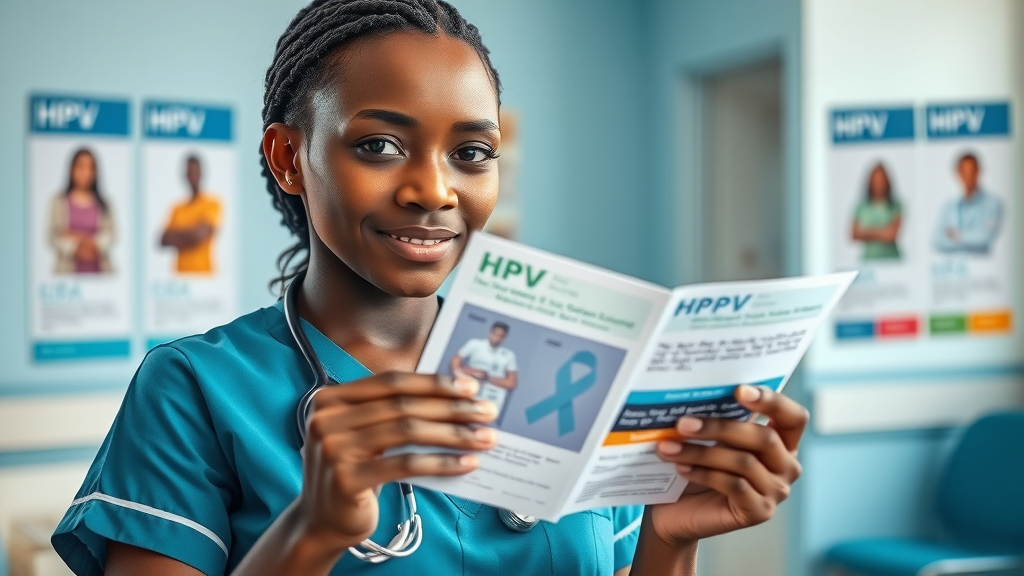
Answer: Health professionals urge HPV vaccination for girls by age 13, regular screenings, and counseling about risk factors and cervical cancer prevention as key measures.
Health workers recommend the HPV vaccine for all girls aged 9-13, strongly supported by the Ministry of Health. In addition to vaccination, they stress the importance of routine cancer screening for women and providing health education on risk factors, such as early sexual activity, multiple sexual partners, and lack of vaccination. Counseling women and families, in the language and context they understand, is essential for effective cancer prevention and control. Health workers also counsel on lifestyle changes, promoting safer sexual practices, and building trust so families feel empowered to prioritize screening and treatment. Public awareness campaigns and school health programs are also gaining steam, reducing stigma and improving knowledge about cervical cancer among Ugandan communities.
What are the barriers to cervical cancer screening in Uganda?
Answer: Barriers include stigma, lack of awareness, limited access to health facilities, cost, and cultural beliefs surrounding reproductive health.
Challenges to cervical cancer screening uptake in Uganda stem from various sources. Many women cite fear of diagnosis, misinformation that screening leads to infertility, or social stigma for seeking reproductive health care. Limited screening services in rural health facilities, the cost of travel to urban clinics, and sometimes even long wait times can discourage women from using these lifesaving cancer screening services. Cultural attitudes often reinforce the belief that reproductive health is a private family matter, limiting open dialogue and access to timely screening and treatment. Government and non-government organizations are working to lower these barriers by improving outreach, subsidizing costs, and increasing the presence of trusted Ugandan health workers in local communities.
What are the 5 cervical cancer screening methods?
Answer: The five primary screening methods include Pap smear, HPV DNA testing, VIA (Visual Inspection with Acetic Acid), colposcopy, and endocervical curettage. Each method is available to varying degrees in Ugandan health facilities.

Uganda employs several screening methods, adapted to local context and available resources. Pap smears, HPV DNA testing, and VIA are the most widely available, often through outreach programs and urban clinics. Colposcopies and endocervical curettage are more advanced procedures, typically found in referral hospitals and specialized facilities like Mulago Hospital or Case Clinic. Each method serves different needs, and choosing the right test often depends on age group, medical history, and guidance from qualified health workers. Uganda continues working to expand these choices, aiming for equitable access to cervical cancer prevention and screening services for all women.
Understanding Cervical Cancer, Prevention, and Risk Factors in Ugandan Women
Cervical Cancer: Key Facts and Knowledge about Cervical Risk Factors
Cultural attitudes towards cervical cancer screening
HPV infection and its link to cervical cancer
Common risk factors: early marriage, multiple sexual partners, HIV, lack of HPV vaccination
The role of health workers and health facilities in education
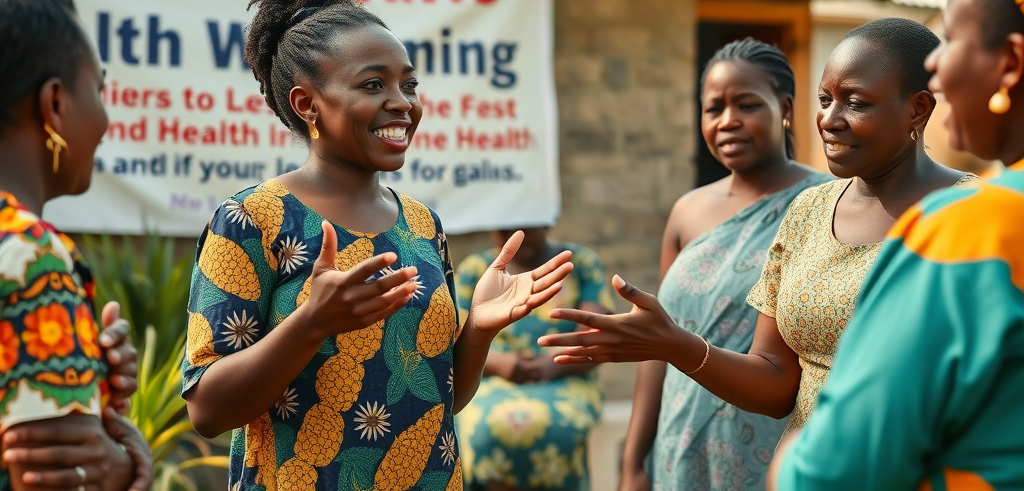
Cervical cancer does not discriminate, but certain risk factors increase vulnerability—especially in Uganda. Infection with the human papillomavirus (HPV) is the chief cause. Early marriage, having multiple sexual partners, HIV infection, and not receiving the HPV vaccine raise the threat. Understanding cultural beliefs around reproductive health is key: Many communities still rely on oral tradition and the advice of elders, sometimes at the expense of science-based preventive care. Health workers and public health educators play a major role in dispelling myths, providing accurate knowledge about cervical cancer, and supporting families to make informed decisions. Accessible, respectful, and culturally sensitive health care ensures that more women know the truth about cancer prevention and screening, and can confidently make decisions that protect their own health and that of their families.
Despite economic and social challenges common in many low- and middle-income countries, growing efforts in Uganda to enhance cancer prevention and control are starting to pay off. Workshops, community screening days, and radio programs now reach families in every region—bridging the gap between tradition and modern care. Encouraging early and regular screening, discussing risk factors openly, and making knowledgeable health workers easily accessible at local health facilities have sparked a positive shift in attitudes toward lifelong wellness.
Cervical Cancer Prevention: HPV Vaccination and Accessibility in Kampala
HPV vaccine cost and availability at Case Clinic
Community outreach and school-based programs
Respecting family preferences and involving caregivers
In Kampala and across Uganda, HPV vaccination is gradually breaking barriers—offering hope for a new generation free of cervical cancer. At Case Clinic and similar urban health facilities, the vaccine is subsidized, making prevention affordable for many families. Government programs and NGOs are collaborating to deliver vaccines through community outreach events and school-based campaigns, ensuring that even girls from lower-income backgrounds have access. For best results, the vaccine is recommended for girls aged 9-13, a message health workers and educators now take directly to caregivers, seeking consent and explaining benefits in a culturally sensitive manner.
This approach honors both modern science and traditional family values. Health workers often involve parents, guardians, and elders in the conversation, building trust before administering the HPV vaccine. Involving caregivers respects household decision-making and dissolves fears about the vaccine. The impact goes even further: As communities embrace HPV vaccination and routine cervical cancer screening, Uganda moves closer to controlling one of its deadliest yet most preventable women's cancers.
Comparison of Cervical Cancer Screening and Vaccination Options Available in Kampala |
||||
Service |
Health Facility |
Cost Estimate |
Age Recommendation |
Cultural Consideration |
|---|---|---|---|---|
Pap Smear |
Case Clinic |
Low |
25-65 |
Female privacy/respect |
HPV DNA Test |
Mulago Hospital |
Moderate |
30-49 |
Informed consent |
VIA (Visual Inspection with Acetic Acid) |
Outreach Programs |
Free/Low |
25-49 |
Community-based |
HPV Vaccination |
Case Clinic |
Subsidized |
9-13 |
Parental involvement |
Navigating Cultural Sensitivity Around Reproductive Health for Ugandan Women
Integrating Traditional Healing Practices and Health Worker Collaboration
How traditional beliefs impact acceptance of cervical cancer screening
Strategies for involving traditional healers in education
Creating trust between health workers and communities
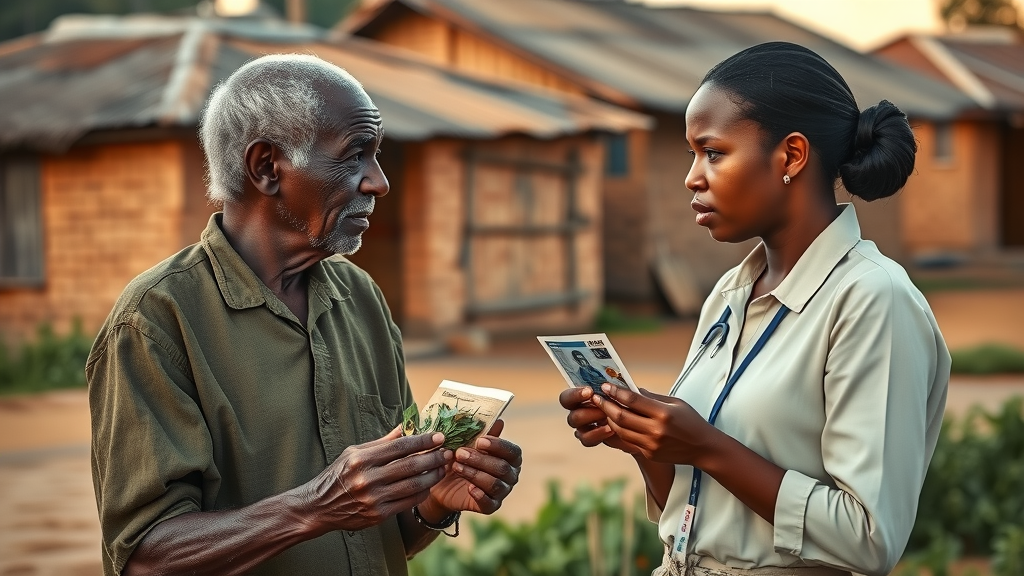
Traditional healing plays a central role in Ugandan communities, shaping beliefs about health and illness. While some families prefer herbal remedies and ancestral rituals, there is a new wave of collaboration emerging between traditional healers and trained health workers. By including traditional leaders in health education, communities are reassured that cervical cancer screening, vaccination, and menopause management can blend with cultural practices, not replace them.
Health professionals at Case Clinic and across Uganda are building relationships with respected community elders and traditional healers, jointly leading workshops on cancer prevention and control. These sessions foster an atmosphere of trust, where women are encouraged to ask questions and express concerns about modern screening and treatment. When community leaders validate these messages, uptake of services rises dramatically. By recognizing the value of both scientific and indigenous knowledge about cervical cancer, Uganda advances on a path that respects identity, educates against harmful risk factors, and supports lifelong wellness for every woman.
"Women can honor their families and traditions while embracing modern care—it’s about balance, respect, and empowerment," – Sr. Nakibuuka, Community Health Worker
Living Beyond Screening: Managing Fibroids and Menopause for Lifelong Wellness
Understanding Fibroids: Symptoms, Screening, and Treatment in Uganda
Prevalence in African women and importance of early detection
Affordable ultrasound services at health facilities like Case Clinic
Cultural conversations about fibroids and fertility
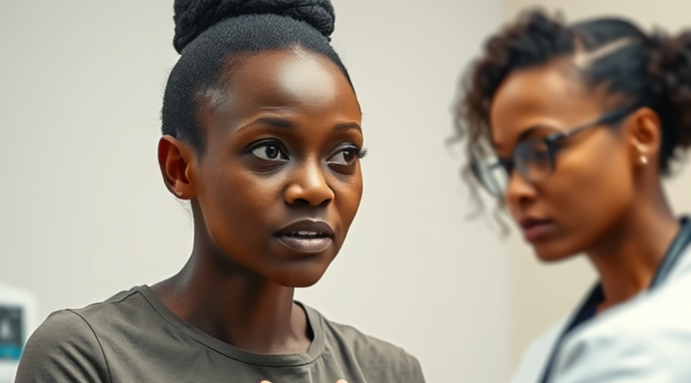
Fibroids, noncancerous growths in or on the uterus, are particularly prevalent among African women, including thousands in Uganda. Left unchecked, they can cause heavy bleeding, pain, and fertility problems. The good news is, early detection through affordable ultrasound screening (readily available at Case Clinic and similar facilities) can make a powerful difference in treatment outcomes. Increasing community conversations about fibroids helps diminish myths about infertility or "bad luck" and encourages women to seek timely, professional support.
Both modern medicine and traditional healers play roles in shaping how fibroids are discussed. Some women start with herbal remedies, but most health workers now urge combining these with clinical care for thorough risk assessment and personalized treatment plans. Creating a supportive, judgment-free environment—where discussing reproductive health, cancer screening, or menopause is normalized—lets Ugandan women make empowered, informed decisions for a lifetime of wellness.
Menopause Management for Ugandan Women in a Tropical Climate
Symptoms and challenges faced by Ugandan women
Natural and clinical therapies, including traditional remedies
Role of health workers and health facilities in menopause support
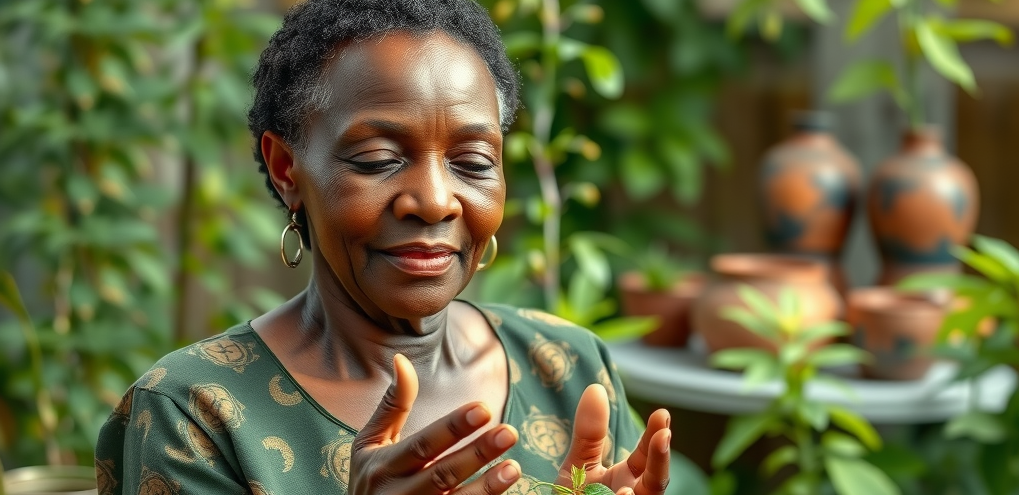
Ugandan women use a combination of therapies: natural remedies like herbal teas, cooling home environments, and where necessary, clinical support from health facilities. Health workers at places like Case Clinic offer menopause counseling, hormone therapy when appropriate, and ongoing wellness monitoring. They also provide practical public health guidance about nutrition, exercise, and self-care—bridging the gap between cultural heritage and effective science. Culturally sensitive menopause management means that no woman needs to suffer alone, and every symptom can be treated with empathy and wisdom.
Family Planning and Reproductive Wellness within Ugandan Cultural Contexts
Discussing Family Planning Openly: How to Balance Tradition, Health, and Empowerment
Available family planning services at Case Clinic
Traditional vs. modern family planning methods
Encouraging dialogue with partners and elders
Family planning remains a delicate balance between personal choice and communal expectations in Uganda. At facilities such as Case Clinic, women can choose from a wide range of contraceptive methods—from injectables and pills to natural family planning and implants. The key is creating safe spaces to discuss options openly, with health workers facilitating respectful, private conversations that include, when possible, both partners and family elders.
Some Ugandan families still prefer natural methods that fit within cultural traditions, while others embrace modern choices for their reliability and effectiveness. By merging public health education with culturally aware counseling, health workers can help bridge generational gaps and dispel myths about fertility, sexual health, and family planning. Offering the full spectrum of screening and treatment services, while also empowering women to speak up and advocate for their reproductive wellness, is a hallmark of lifelong wellness in the Ugandan context.
Accessible Family Planning Options for Ugandan Women |
||||
Method |
Cost |
Effectiveness |
Cultural Acceptance |
Offered at Case Clinic |
|---|---|---|---|---|
Injectables |
Low |
High |
Widely accepted |
Yes |
Pills |
Low |
High |
Increasingly accepted |
Yes |
Natural methods |
Free |
Medium |
Culturally familiar |
Yes |
Implants |
Moderate |
Very High |
Gaining traction |
Yes |
Overcoming Systemic Barriers: How Women, Health Workers, and Clinics Advance Cancer Prevention
Income Countries and Healthcare Access: Unique Ugandan Challenges
Cost barriers and affordable remedies at Case Clinic
Role of health workers and community education
Government and NGO efforts on cancer prev and screening and treatment
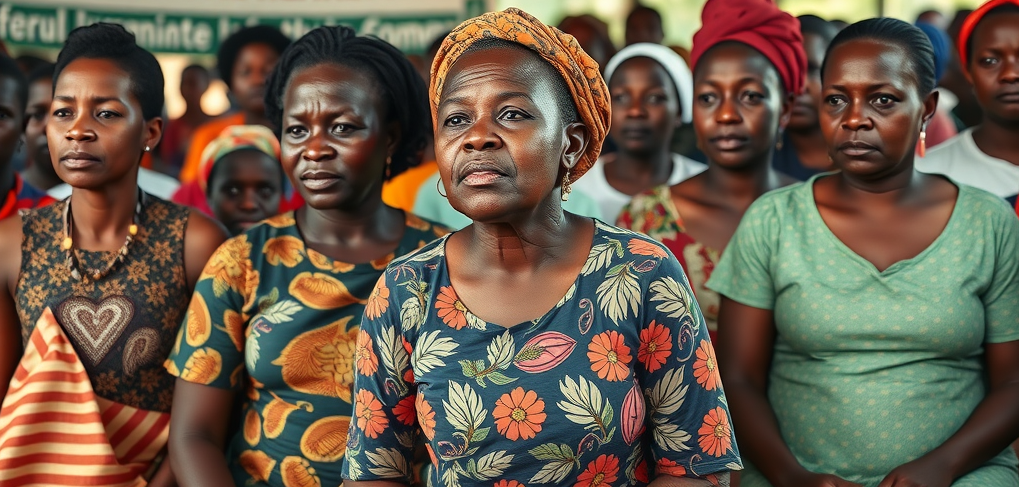
Women in Uganda face unique healthcare access issues common to other low- and middle-income countries: costs of services, gaps in health education, and long-standing taboos around reproductive health. However, remarkable change is underway. Affordable cancer screening services at places like Case Clinic, relentless health worker outreach, government campaigns, and NGO intervention are breaking down barriers to early diagnosis and care. By investing in both community health workers and modern technologies—like mobile screening units and digital health education—Uganda proves it's possible to close the gap between what is available and what women truly need.
Tireless advocacy by Ugandan women has yielded policy improvements on cancer prevention and control, including subsidies for HPV vaccines and wider access to screening program options. Well-supported health workers connect women with screening and treatment, teach families about risk factors, and champion a community-based approach to lifelong health. This united front promises not only better individual outcomes, but also healthier families, better public health, and ultimately, a stronger nation.
Case Study: Ugandan Women's Success Stories in Screening and Treatment at Case Clinic
Empowered By Prevention: Testimonials from Women, Health Workers, and Families
"Getting screened was the best decision for my family and me. Now, I speak to my daughters and sisters about yearly cancer screening." – Rose, Kampala

When families celebrate successful screening and early detection, the wider community sees the proof that health and tradition can thrive together. Knowledge of cervical cancer is becoming widespread—thanks to a blend of public health education, skilled health workers, and women who lead by example. This shift is proof positive that lifelong wellness is possible for every Ugandan woman, regardless of age, background, or beliefs.
FAQs: Lifelong Wellness, Screening, and Prevention for Ugandan Women
How often should Ugandan women get screened for cervical cancer?
Every Ugandan woman aged 25-65 should get screened for cervical cancer every three years. If you are HIV positive or have a family history of cancer of the cervix, talk to your health worker about more frequent screening.What options exist if I cannot afford screening?
Look for free or subsidized screening service events at Case Clinic, community outreach programs, or government-sponsored clinics. Some NGOs provide additional support for cancer screening and treatment and HIV services.Can I combine traditional remedies with clinical care?
Many women use both. Always inform your healthcare professional and seek their guidance to ensure safe and effective treatment—blending tradition and modern medicine as needed.Who should I talk to at my local health facility for more information?
Ask for a qualified health worker: nurses, clinical officers, or doctors are trained to provide accurate information about cervical cancer prevention, screening, and treatment. Case Clinic and clinics nationwide have staff ready to help.
Key Takeaways: Steps Every Ugandan Woman Can Take Today for Lifelong Wellness
Schedule regular cervical cancer screening at a trusted health facility
Consider HPV vaccination for daughters
Discuss screening openly with family and respect cultural traditions
Seek menopause and fibroid support from qualified health workers
Empower your wellness journey and share information with other women
Conclusion: Celebrating Ugandan Women, Empowering Lifelong Wellness through Screening, Prevention, and Respect
With knowledge, community support, and balanced care, Ugandan women can achieve lifelong wellness, starting today.
Join the Movement for Empowered Health: Discover Case Medcare Services Uganda
Find affordable, culturally sensitive screening and treatment. Visit https://casemedcareservices.org
Sources
To further enhance your understanding of cervical cancer screening and its importance for Ugandan women, consider exploring the following resources:
The article “Women’s knowledge and attitudes towards cervical cancer prevention: a cross-sectional study in Eastern Uganda” provides valuable insights into the awareness levels and perceptions of women regarding cervical cancer prevention in Eastern Uganda.
Additionally, “Understanding women’s and men’s perspectives on cervical cancer screening in Uganda: a qualitative study” offers an in-depth exploration of the factors influencing both women’s and men’s views on cervical cancer screening, highlighting the role of spousal support and cultural beliefs.
These studies offer comprehensive perspectives on the challenges and facilitators of cervical cancer screening in Uganda. By delving into these resources, you can gain a deeper understanding of the cultural and social dynamics at play, empowering you to make informed decisions about your health and well-being.
 Add Row
Add Row  Add
Add 


Write A Comment